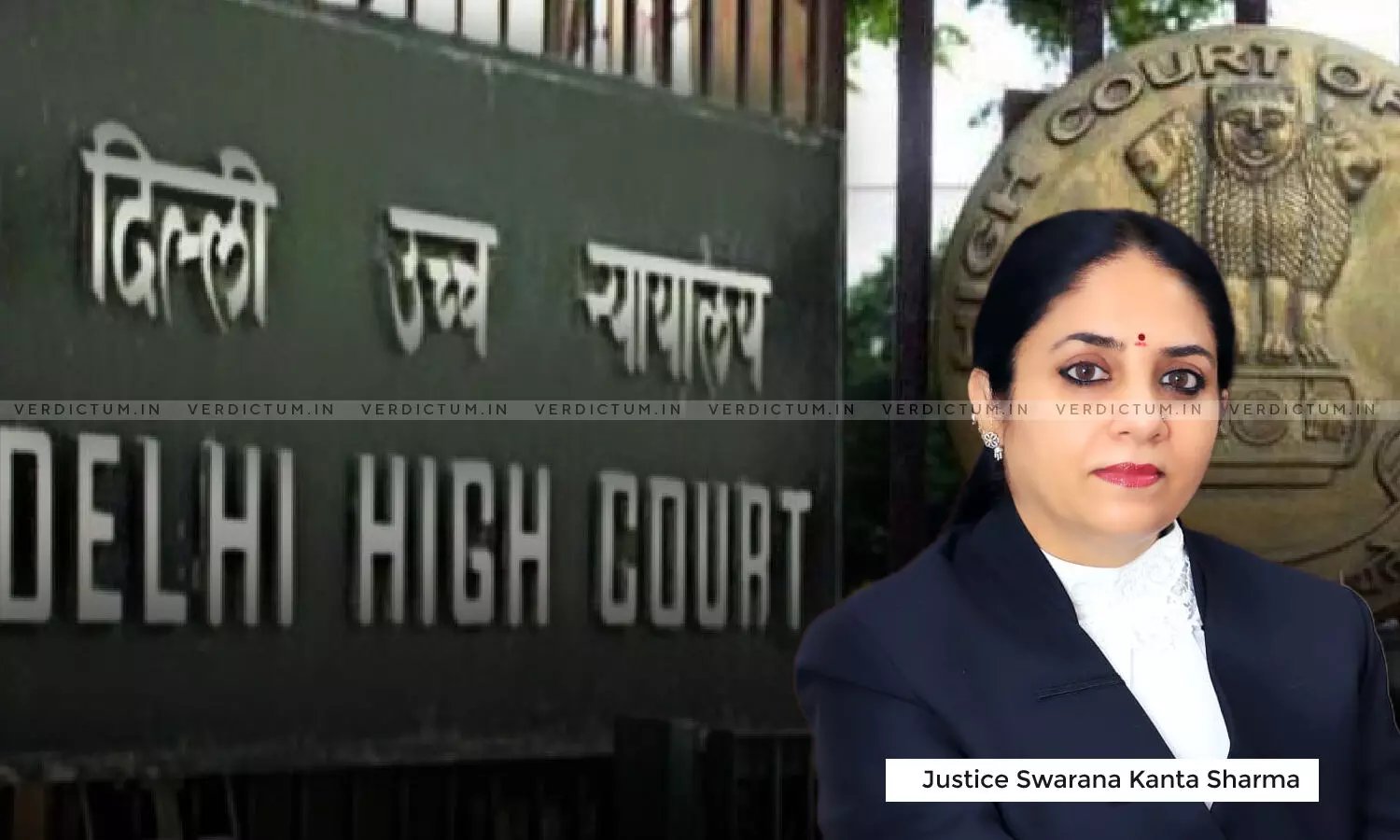
Victim Shaming & Victim’s Family Shaming As Defence Must Not Be Allowed In Child Sexual Harassment Cases: Delhi HC
 |
|The Delhi High Court has emphasized the importance of judicial firmness in cases of child sexual harassment, underlining its role in encouraging victims and families to report such crimes without fear of stigma.
The bench of Justice Swarana Kanta Sharma underscored that victim shaming must be vehemently opposed to facilitate reporting of offenses and ensure justice is served seriously.
"..victim shaming and victim’s family shaming must not be allowed as it will be a deterrent and road block in the real victims reporting such offences to the authorities. Taking a lenient view in such cases will also discourage the real victims of such offences," the Court remarked.
The Court's remarks came during the dismissal of a Criminal Appeal challenging the conviction and three-year sentence of a man involved in a voyeurism and sexual harassment case concerning a minor. The case revealed disturbing details of the child being victimized within her own home by a staff member employed by her father, using a mobile phone to perpetrate the crimes.
Highlighting the pervasive danger of electronic devices in such offenses, the court affirmed that stringent legal actions act as a deterrent against potential offenders. It emphasized the judiciary's duty to shield vulnerable individuals, particularly children, from secondary trauma caused by unjust accusations or victim-blaming narratives. "The Courts act as guardians of the rule of law in the country and community and must weigh this factor in mind. It is imperative that the judiciary ensures children in this country are not forced by such trauma to leave their homeland," it said.
The Court noted that the victim in the present case has faced multidimensional trauma since children of this age group are already under the pressure of their board examinations, which decide their future. "Amidst this, pressure, she faced the indescribable trauma of voyeurism within the safety of her own home and the privacy of her room. The appellant had stealthily recorded videos, an act beyond imagination or expectation of the child victim or her family. This trauma severely impacted her ability to concentrate on her studies and career, ultimately leading her to leave the country for higher studies as she could not continue in the same place where she had been a victim of sexual harassment," it said.
The Court noted that in the present case, the impact on the victim was profound and the trauma was so severe that the victim was forced to leave the place of her upbringing due to the emotional and psychological distress attached to the incident. "Pursuing higher studies in educational institutes of their choice, whether in India or abroad, should be a willing and happy choice made by themselves, stemming from their own personal dreams and aspirations, not as an escape from the aftermath of a traumatic experience. The legal system must provide a sense of justice and security, helping victims to reclaim their lives without having to abandon their homes and futures," the Court said.
Highlighting the need for Courts to consider not only the physical impact of such crimes but also the mental and emotional toll on the victim’s overall well-being, the Single-Bench said, "The judicial system must recognize the long-term consequences of voyeurism and sexual assault, ensuring that victims receive justice and support to rebuild their lives."
Consequently, the Court ordered, "Therefore, in view of the foregoing discussion, and upon applying the principles of criminal jurisprudence as discussed above, this Court is not inclined to set aside either the impugned judgment or the order on sentence having found no infirmity or error in the order of conviction passed by the learned Trial Court. Accordingly, the present appeal along with the pending application stands dismissed."
Cause Title: Pintu Das v. State Govt of NCT of Delhi [Neutral Citation: 2024: DHC: 4832]
Appearance:-
Petitioner: Advocates Badal Dwivedi, Barkha Tiwar
Respondent: Assistant Public Prosecutor (APP) Naresh Kumar Chahar, Advocates Karan Khurana, Hari Shankar Sharma, Senior Advocate Mohit Mathur, Advocates Vikram Singh Panwar, Rajesh Mishra, Suyash Sinha, Harsh Gautam
Click here to read/download the Judgment